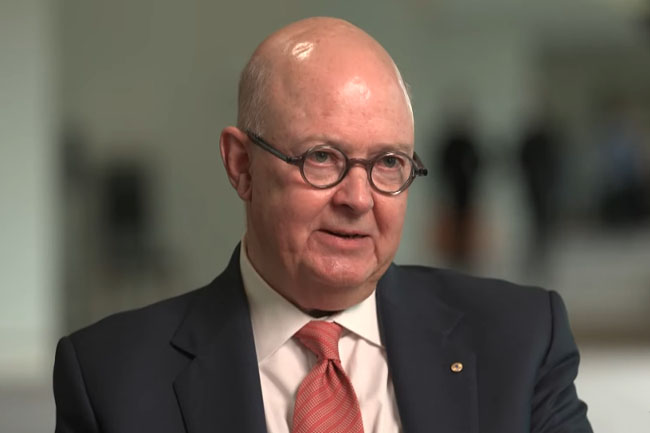THE MEDIA WORLD is agog with stories that Rupert Murdoch’s mighty newspaper empire is in chaos and may even be verging on collapse.
Is it the beginning of the end for the magnate who created the largest concentration of media power in the history of the planet, starting in 1952, by buying broken down newspapers that nobody else wanted?
Murdoch used the power of those newspapers to build an international goliath, incorporating movies, TV, book publishing and anything else he could buy and use cheaply. His efforts created lucrative revenues, much of it now stashed in tax free havens in the West Indian islands of the Caribbean.
Estimates of the extent of his wealth sometimes reach to a modest $30 billion, but the truth is often clouded by skilful accounting methods.
He shows no sign of stepping down from his company at the age of 82. He told investors at a 21st Century Fox conference last week that a succession plan has been established but declined to name anyone to take over his position.
The Fairfax-owned Australian Financial Review recently ran no less than five long articles in one single edition — articles that could be comparable to a small novel. The articles, written by the paper’s most senior journalists, laid out voluminous details of the internal ructions filtrating through the Murdoch’s companies.
Fairfax and News are clearly at war, but neither may survive the coming Australian election. The election, in fact, will be an important guide to the remaining power of the media barons and their cleverly contrived opinion polls. Both companies place their reliance on a Liberal-National government led by Tony Abbott and his obnoxious and grovelling crew.
Where are the polls that reveal the mood of the millions of Australians who now use − not the papers and their polls − but the internet?
The mining magnate from Western Australia, Gina Rinehart, has invested enough money in Fairfax to keep the company afloat — for the time being. But she has just learned from a recent Supreme Court judgment that her influence against honest news reporting cannot be relied upon.
Murdoch has avoided the same trap in the past, by hiring selectively chosen editors and reporters who are prepared to sacrifice their integrity — perhaps with a quaint belief that Murdoch is right in everything he does and says, whether in politics or in the values of the personal lives of individual human beings.
Criminal or irresponsible conduct in institutions like politics and sport and governance is certainly wide open to exposure, but personal privacy of ordinary people − even celebrity actors, entertainers, sportsmen and royalty − deserves discretion.
Significant in all the stories about News is the fact that Murdoch now appears to have only a handful of people he thinks he can trust.
The crude dumping of his Australian head, Kim Williams, has now left the management of News Corporation in the hands of only five people. Even a small octopus has eight arms. News shareholders must be wondering about the future of their investments.
After Rupert Murdoch himself are Chase Carey, the corporate chief executive in the US; journalist and editor Robert Thomson, an Australian, who is the supreme commander of all the newspapers in three countries (about 200 of them at last count); and then come Murdoch’s two sons: Lachlan, who engineered the dismissal of Kim Williams (although Thompson did the firing); and James, who is lying low in New York to avoid British investigators after a long series of serious goofs.
There are, of course many others in the management line, but the majority tend to be anonymous and always subject to the whims and fancies of the powerful five.
Kim Williams, for example, was in his job for less than two years — forced out by Lachlan Murdoch after a phone call to his father. Williams' sin was that he deprived Lachlan’s Ten Network TV of certain sporting coverage rights. Williams was protecting the rights of one of the major Foxtel shareholders — the publicly owned Telstra.
In my own years with Rupert, when it came to firing someone, he never did the deed personally. Only when he fired his best friend, Rohan Rivett, in 1960, did he do it with a cruel, cowardly and terse letter typed by a secretary when he was out of town. From then on he always had someone else do the executions — as Robert Thomson had to do when Rupert decided Williams had to go.
One week before the Australian election, the Old Bailey judges in London will begin hearing the charges laid against Murdoch’s employees for a plethora of crimes, including bribery. I hope at least one judge will ask the question:
'Whose money did you use to carry out this offence? Your own or your employer’s?'
This work is licensed under a Creative Commons Attribution-NonCommercial-NoDerivs 3.0 Australia License









